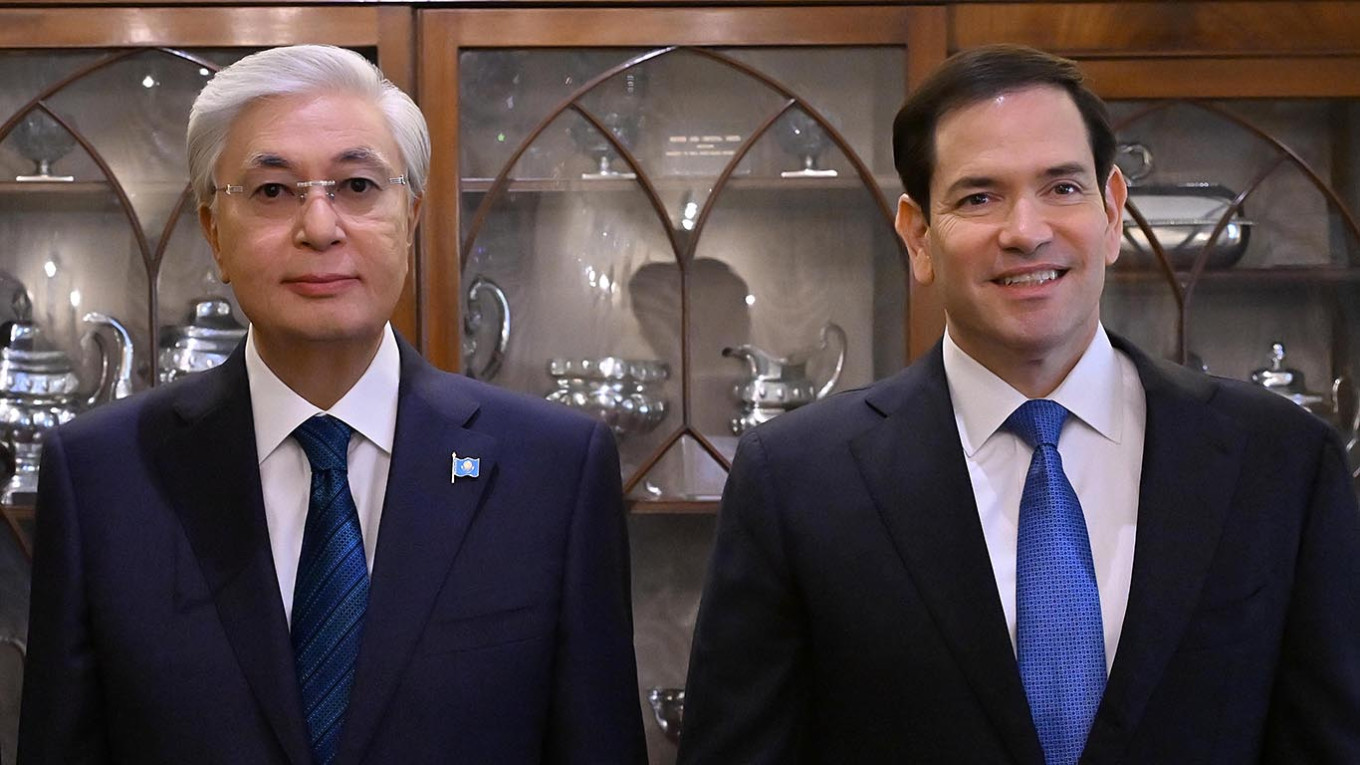This article was initially published by Eurasianet.
Leaders from Central Asia are heading to Washington to participate in a summit with President Donald Trump, bringing with them an agenda that includes a range of issues beyond just trade.
Uzbek President Shavkat Mirziyoyev was the first to arrive in the U.S. capital, landing on November 4. He is scheduled to meet with U.S. lawmakers and business leaders on November 5, before joining the White House summit the following day, conducted under the C5+1 framework.
At this summit, Trump is expected to emphasize his focus on enhancing U.S. access to Central Asia’s rich deposits of critical minerals and rare earth elements. High-level and confidential discussions on this topic have been ongoing since the summit’s announcement on October 26. On the same day, two prominent U.S. diplomats commenced a four-day visit to Uzbekistan and Kazakhstan. Additionally, on November 4, Kazakh Energy Minister Erlan Akkezhenov met with Doug Burgum, the U.S. Secretary of the Interior, who also leads the National Energy Dominance Council.
Despite the numerous discussions taking place, regional analysts do not anticipate that the summit on November 6 will result in significant outcomes regarding critical minerals. The “quick, short notice” nature of the summit suggests that it is “unlikely to achieve substantial progress” on such a “sensitive and complex” issue as the advancement of the critical minerals sector, according to Emilbek Dzhuraev, a political scientist affiliated with the OSCE Academy in Bishkek.
To foster a constructive environment for collaboration, U.S. officials need to acknowledge the multi-faceted positions of Central Asian countries concerning critical minerals and related trade matters. Dzhuraev cautioned against a zero-sum strategy, where the U.S. seeks to monopolize access to these resources, arguing that this approach is impractical due to China’s position as the region’s leading trade partner.
Trump should assure Central Asian leaders that strengthening ties with Washington “doesn’t necessitate cutting off ties with others,” Dzhuraev pointed out, noting that “[Russian President Vladimir] Putin will be closely observing… the discussions held in Washington.”
The limited timeframe for the meeting may leave Central Asian leaders with insufficient opportunity to raise several matters they hope the Trump administration will address.
One trade-related topic on the agenda for regional leaders is the Taliban regime in Afghanistan, which obstructs access to a seaport for Central Asia. Kazakhstan and Uzbekistan have recently taken the lead in efforts to engage with the Taliban, not only to explore new trade opportunities but also due to the understanding that Afghanistan’s cooperation is essential for tackling urgent regional challenges, such as the growing scarcity of water resources.
Since the Taliban regained control, the U.S. has refrained from recognizing the government, primarily due to its oppressive policies, particularly concerning women’s rights. Central Asian leaders believe the U.S. and the European Union should adopt a more adaptable stance if they wish to achieve trade objectives.
Leaders in Central Asia are “convinced that engagement with the Taliban is necessary, as complete detachment and isolation of Kabul have not proven effective,” Dzhuraev remarked.
During the summit, Central Asian leaders may aim to address specific national concerns. For instance, Kyrgyz President Sadyr Japarov is likely to discuss U.S. immigration policies and the non-immigrant visa limitations affecting Kyrgyz citizens, who can no longer obtain 10-year multi-entry visas and must instead apply for single-entry visas valid for 90 days. Turkmen nationals face similar restrictions.
Dzhuraev also indicated that Japarov might bring up U.S. sanctions on the Kyrgyz banking sector, which officials from both the U.S. and the U.K. have pointed to as assisting Russia in acquiring equipment and technology that support its military actions in Ukraine.
Kazakh President Kassym-Jomart Tokayev is expected to advocate for collective efforts to tackle an impending environmental crisis — the declining water levels of the Caspian Sea. To capture the Trump administration’s attention, he may frame the issue as a danger to trade along the Middle Corridor, which is prioritized by U.S. policy, given that reduced water levels hinder cargo access to key ports, including Aktau. Kazakh officials also seek assurances that the Trump administration will collaborate with Congress to rescind Jackson-Vanik trade restrictions on Astana.
Kazakhstan and Uzbekistan have expressed interest in enhancing cultural and educational exchanges to facilitate the development of a Central Asian managerial class equipped with the necessary skills for modernizing their economies.
One subject likely to be off the table at the summit is human rights and political freedoms, according to Dzhuraev. Since Trump’s return to office in January, human rights concerns have taken a backseat to trade negotiations in U.S. diplomatic efforts.
Trump’s record on human rights issues suggests that he may be unlikely to address an open letter from a Tajik opposition group, the Movement for Reform and Growth. In the letter dated November 5, the group urges Trump to confront the issue of political oppression in Tajikistan during his meeting with President Emomali Rahmon and to call for the release of political prisoners.
“Neglecting this crisis [of political repression in Tajikistan] could lead to instability in Central Asia, bolstering extremism and undermining strategic control in a region where authoritarian forces are already competing intensely,” the letter warns.

